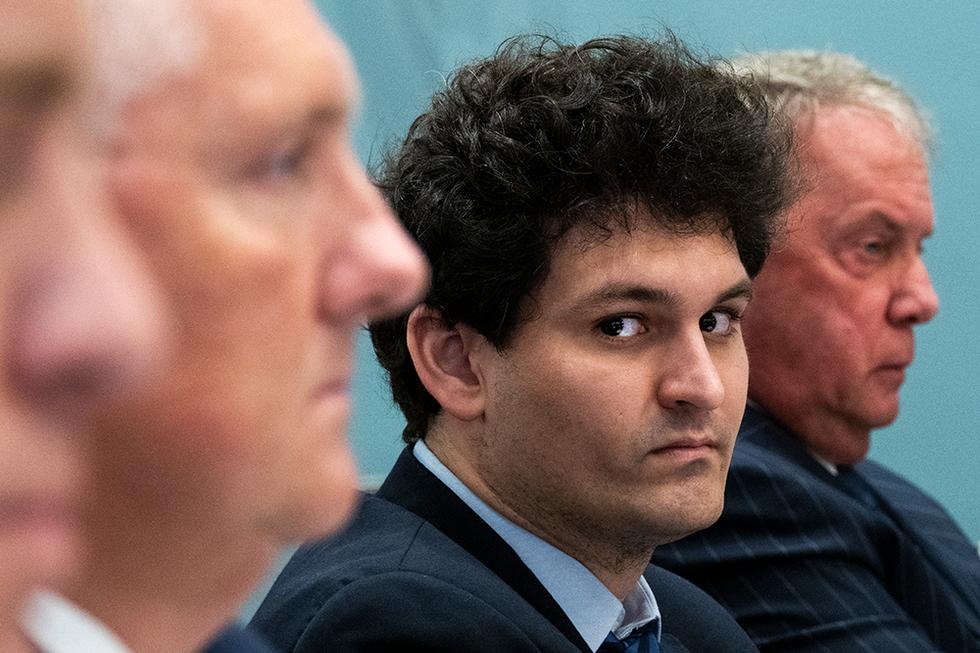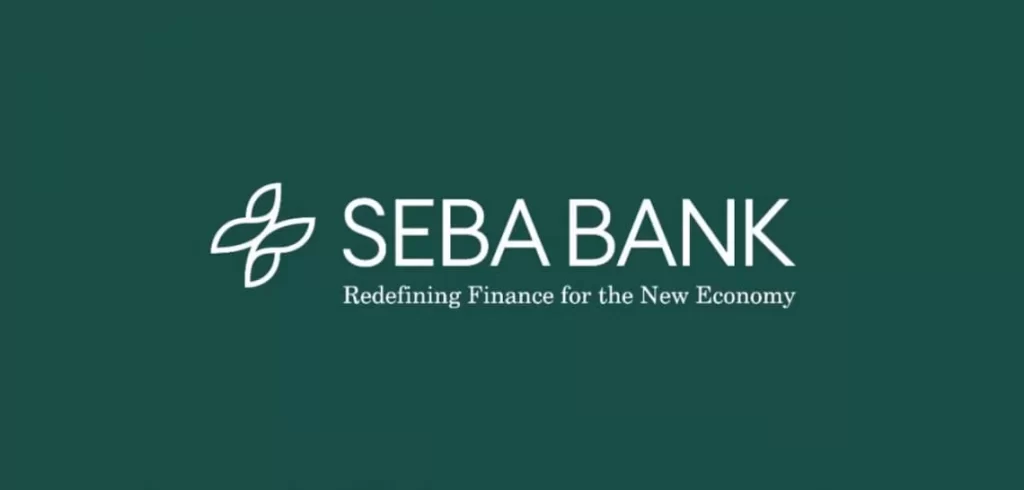Former FTX CEO Sam “SBF” Bankman-Fried has opted not to pursue any post-trial motions following his conviction on federal fraud charges on November 2.
His legal team communicated this decision in a letter dated December 1 to Judge Lewis Kaplan in the United States District Court for the Southern District of New York.
While they have chosen not to file post-trial motions, they have reserved the right to pursue claims on appeal. This development comes as the latest in the ongoing legal saga surrounding SBF, who is scheduled for sentencing on March 28.
The situation regarding Bankman-Fried’s second trial in March remains uncertain.
Initially, his indictment was split into two parts, with seven counts in October and five charges scheduled for March.
READ MORE: Circle Firmly Denies Illicit Financing Claims and Ties to Justin Sun in Open Letter
However, following the guilty verdict in November, SBF now faces the possibility of a lengthy prison sentence that could span decades.
Following the jury’s verdict, Bankman-Fried was returned to the Brooklyn Metropolitan Detention Center, where he is expected to remain until his sentencing date.
On November 30, crypto blogger Tiffany Fong conducted an interview with a former mob enforcer named Gene Borrello, who disclosed some of SBF’s experiences in jail.
Borrello claimed that another inmate had attempted to extort the former FTX CEO during his time in detention.
Bankman-Fried’s legal troubles have made him one of the first high-profile crypto executives to face criminal charges in the United States.
In a similar vein, former Celsius CEO Alex Mashinsky was arrested in July, and as of the current date, he remains free on bail pending his criminal trial scheduled for September 2024.
Changpeng Zhao, who stepped down as CEO of Binance and pleaded guilty to a felony charge as part of a settlement with U.S. authorities, is slated for sentencing in February.
The crypto industry continues to grapple with legal challenges, with these cases drawing significant attention as they unfold.
Lawyers representing the United States Securities and Exchange Commission (SEC) and Terraform Labs, along with co-founder Do Kwon, engaged in a heated courtroom battle centered around information provided by an anonymous whistleblower in a securities lawsuit.
This legal showdown, which unfolded in the U.S. District Court for the Southern District of New York, is of significant consequence to the crypto community.
On November 30, a transcript of the court proceedings, disclosed by Inner City Press, revealed that the SEC continued to assert its allegations of fraud against Terra and Kwon, specifically concerning the LUNA token.
The SEC supported its claims with sealed evidence furnished by the undisclosed whistleblower.
In response, Kwon’s and Terra’s legal team vehemently challenged the SEC’s position, accusing them of inconsistency regarding the depegging of TerraUSD (UST) from the U.S. dollar.
“The SEC has misrepresented Do Kwon’s statements,” asserted Kwon’s and Terra’s lawyer. “The whistleblower, whose identity we cannot reveal, has withheld some of their recordings.”
Judge Jed Rakoff, presiding over the case, weighed in during the proceedings, suggesting that any filings made under seal might lose their confidentiality status should the case proceed to trial.
READ MORE: Coinbase Reports Surge in Law Enforcement Requests, with the U.S. Leading the Pack
This development followed the judge’s approval, on November 28, of confidential treatment for certain materials submitted by Jump Crypto, a firm implicated in the events leading up to the UST depegging controversy.
Do Kwon, who had previously been arrested in Montenegro in March for allegedly using counterfeit travel documents, now faces the possibility of extradition to either the United States or South Korea, subject to court approval.
In addition to the SEC’s civil lawsuit, Kwon also faces eight criminal charges related to fraud at Terraform Labs.
The trajectory of the case hinges on Judge Rakoff’s decision regarding motions for summary judgment. Should he deny these motions, the SEC’s case against Terra and Kwon is slated to commence in January 2024.
Furthermore, former FTX CEO Sam Bankman-Fried awaits sentencing in March 2024, while the trial of former Celsius CEO Alex Mashinsky is anticipated to take place in September 2024, both in the same judicial district.
These legal battles underscore the growing regulatory scrutiny and legal challenges facing the cryptocurrency industry.
Australians are increasingly turning to cryptocurrency as a means to secure a prosperous retirement, as self-managed retirement funds show a remarkable 400% surge in cryptocurrency allocation over just four years, outpacing the growth rate of traditional stocks and bonds.
Statistics released by the Australian Tax Office (ATO) on November 26 reveal that, as of the quarter ending in September, the nearly 612,000 self-managed super funds (SMSFs) collectively hold approximately $658.6 million (992 million Australian dollars) worth of cryptocurrencies.
This figure marks a staggering 400% increase from the same quarter in 2019 when crypto holdings stood at just under $131.5 million (198 million AU).
In Australia, self-managed super funds, also referred to as private superannuation funds, empower individuals to manage and invest their retirement funds autonomously.
The ATO oversees this retirement scheme, ensuring compliance with superannuation laws.
Danny Talwar, Head of Tax at crypto tax provider Koinly, described crypto as the “largest growing asset class in SMSFs.”
In contrast, listed shares, which constitute the largest allocation category in SMSFs, grew by 28% during the same period, while allocations to debt securities like bonds declined by 5.8% over the past four years.
Despite this remarkable growth, total SMSF allocations to cryptocurrency saw a slight 0.8% dip from the quarter ending in June 2023, along with a 2.4% drop compared to the previous year.
READ MORE: Swiss Asset Manager Pando Asset Joins U.S. Bitcoin ETF Race as BlackRock Refines Model with SEC
It’s worth noting that the current amount of crypto held within self-managed funds is still 38% lower than the all-time high of nearly $1.06 billion (1.6 billion AU) recorded in the quarter ending June 2021 during the previous crypto bull market.
Talwar highlighted that cryptocurrency accounts for only 0.1% of the total net assets held in Australian SMSFs at the end of the last quarter.
He also pointed out that smaller-sized SMSFs tend to have a larger allocation to cryptocurrencies in their portfolios.
The trend of holding crypto within super funds is on the rise, with local crypto exchanges offering crypto superannuation products.
However, Talwar cautioned that certain rules and regulations must be followed, emphasizing that the SMSF strategy should be geared toward providing a retirement benefit.
Compliance, audits, and clear separation of SMSF holdings from personal holdings are crucial to avoid complications.
Unfortunately, specific details about the cryptocurrencies held by SMSFs and their gains or losses remain unknown, as the ATO does not provide information on portfolio holdings or performance.
In a recent development in Hong Kong’s cryptocurrency landscape, scammers have managed to lure 145 unsuspecting victims into investing a staggering $18.9 million into the unlicensed crypto exchange known as Hounax.
These fraudulent individuals posed as investment experts, promising investors an annual return of up to 40%, all while guaranteeing “no risk” in their enticing advertisements.
However, once users deposited their hard-earned funds into Hounax, they found themselves unable to make withdrawals.
The Securities & Futures Exchange (SFC) of Hong Kong raised concerns about Hounax’s suspicious activities and listed it on its billboard of questionable crypto exchanges on November 1.
However, due to Hounax’s unlicensed status at the time of the incident, the regulator’s enforcement actions did not apply.
This incident marks the second cryptocurrency scandal to hit Hong Kong in recent months.
In September, another unlicensed exchange called JPEX collapsed amidst allegations of running a Ponzi scheme.
READ MORE: Demand for Bitcoin Futures Surges
This led to 66 arrests and an estimated loss of $205 million for investors.
Despite these troubling events, Hong Kong regulators are displaying a resolute commitment to establishing the city as a prominent hub for Web3 technologies.
SFC CEO Julia Leung stated that they have no intentions of modifying the grace period and other measures aimed at regulating the cryptocurrency sector, even if the grace period ends in June 2024 under current regulations.
In a positive turn of events for the crypto industry in Hong Kong, financial institutions Interactive Brokers and Victory Securities recently announced that they have obtained crypto licenses.
Interactive Brokers has partnered with the licensed crypto exchange OSL to offer immediate Bitcoin and Ethereum trading services to its clients in Hong Kong.
Furthermore, on November 29, Darryl Chan, deputy chief executive of the Hong Kong Monetary Authority, unveiled an ambitious multinational initiative known as “mBridge.”
This protocol aims to create a cross-chain bridge for China’s digital yuan central bank digital currency, with the goal of reducing transaction fees and improving cross-border transaction speeds.
The first pilot tests for mBridge will commence in mainland China and Hong Kong, marking a significant step towards enhancing the digital yuan’s utility on a global scale.
Coinbase, a prominent cryptocurrency exchange, has disclosed a notable uptick in requests from law enforcement and government agencies, marking a 6% increase compared to the previous year, as indicated in the exchange’s annual transparency report.
This surge in requests was accompanied by a significant rise in the number of jurisdictions seeking information, which soared by 19.
Among the countries contributing to this surge, the United States, Germany, the United Kingdom, and Spain collectively accounted for a substantial 73% of the 13,079 agency requests directed towards Coinbase during the period spanning Q4 2022 to Q3 2023.
The United States stood out with a staggering 5,686 requests, primarily stemming from criminal enforcement agencies, reflecting a rise from the previous year’s 5,304 requests.
Germany ranked second with 1,906 requests, swapping places with the UK, which saw a modest decline to 1,401 requests. Spain secured the fourth position with 732 requests.
In contrast, Australia experienced a remarkable 262% surge in requests sent to Coinbase compared to the previous year, placing it sixth on the list with 453 requests.
Meanwhile, Ukraine’s requests more than tripled, and Portugal’s requests more than doubled, though they did not breach the top 15.
READ MORE: FTX Receives Approval to Sell $873 Million in Trust Assets to Repay Creditors
The transparency report covered the final quarter of 2022 and the first three quarters of 2023, encompassing various types of requests such as subpoenas, court orders, search warrants, and other formal legal processes.
Coinbase complied with these requests, offering customer information like names, recent login/logout IP addresses, and payment details, although it occasionally sought clarification from the requesting authorities to ensure compliance with financial regulations and other applicable laws.
Coinbase highlighted in a September blog post that 83% of “G20 members and major financial hubs” have enacted cryptocurrency regulations, including the European Union’s Markets in Crypto-Assets (MiCA) regulation.
This global regulatory landscape has prompted enforcement agencies worldwide to intensify efforts to combat crypto-related crimes by strengthening their investigative units to track potentially illicit crypto transactions.
It’s worth noting that Coinbase faced legal action in June, with the U.S. Securities and Exchange Commission alleging the sale of unregistered securities.
The exchange contested the SEC’s authority in the case through a court filing in October.
Coinbase, operating in over 100 countries, announced its expansion plans in September, targeting the European Union, United Kingdom, Canada, Brazil, Singapore, and Australia, where clear cryptocurrency rules are being established.
Swiss cryptocurrency-focused bank Seba has undergone a significant transformation, rebranding itself as Amina Bank AG.
This shift reflects the institution’s ambitious plans to expand its global trading services.
The decision to change its name was motivated by the need to distinguish itself from SEB Bank in Sweden.
Amina CEO Franz Bergmueller explained that both SEB Bank and SEBA Bank had mutually agreed to alter their names in 2023, leading to the birth of Amina.
The name “Amina” derives from “transamination,” a term associated with the transfer of compounds between elements.
This choice signifies Amina’s mission to unite various facets of traditional, digital, and cryptocurrency banking.
In contrast, Seba’s previous name was a nod to its founder, Sebastien Merillat, who has expressed his passion for technology.
READ MORE: Swiss Asset Manager Pando Asset Joins U.S. Bitcoin ETF Race as BlackRock Refines Model with SEC
Amina’s rebranding coincides with its aggressive global expansion efforts.
The bank recently secured a license from the Hong Kong Securities and Futures Commission, enabling it to offer cryptocurrency trading services in the region.
In 2022, it obtained financial services permission from the Abu Dhabi Global Market and established an office in Abu Dhabi.
Amina’s CEO outlined their vision for 2024, emphasizing the acceleration of growth in key strategic locations like Switzerland, Hong Kong, and Abu Dhabi, with a continued focus on Switzerland, Abu Dhabi, and the Asia-Pacific region, including Hong Kong and Singapore.
Despite the name change, existing clients of Amina Bank, formerly known as Seba Bank, can expect uninterrupted service as the transition will not affect ongoing operations.
Amina operates globally and provides clients with both traditional and cryptocurrency banking services.
Launched in 2018, Amina plays a significant role in the cryptocurrency ecosystem, facilitating the provision of crypto-related services by financial institutions.
In November 2023, Switzerland’s St.Galler Kantonalbank, one of the country’s largest banks, partnered with the institution, then operating under the Seba brand, to offer digital asset custody and brokerage services to its clients.
ARK Invest, the cryptocurrency investment firm led by prominent Bitcoin advocate Cathie Wood, made a significant investment move on November 29th, acquiring approximately $1.5 million worth of SoFi Technologies (SOFI) shares.
This strategic move occurred on the same day that SoFi Technologies made a surprising announcement, revealing its exit from the cryptocurrency market.
ARK Invest purchased a total of 200,275 SOFI shares on November 29th, earmarking them for inclusion in its ARK Fintech Innovation ETF (ARKF).
Based on the closing price of SOFI on that day, which stood at $7.35 per share according to TradingView data, the investment was valued at approximately $1.47 million.
SoFi Technologies officially confirmed its decision to terminate its cryptocurrency services by December 19, 2023, a move that garnered attention and speculation in the crypto community.
The company stated, “After careful consideration, we’ve made the decision to discontinue our crypto services by the end of this year.”
They encouraged their customers to migrate their crypto assets to the online crypto wallet provided by Blockchain.com.
Throughout the year, ARK Invest has been actively accumulating SoFi shares, amassing a total of 1,772,991 SOFI shares for ARKF.
READ MORE: Poloniex Announces Gradual Resumption of Services Following $100 Million Hack
This investment currently represents a value of around $13 million at current market prices.
SoFi’s stock has experienced notable volatility in 2023, reaching a peak of $11.45 in July, compared to its starting price of just $4.50 at the beginning of the year.
However, it gradually declined, falling below $7 in mid-November.
In addition to their investment in SoFi, ARK Invest also purchased 221,759 shares of Robinhood (HOOD) on the same day, November 29th.
Robinhood’s trading platform allows users to buy and trade cryptocurrencies like Bitcoin in the United States.
Interestingly, Robinhood unveiled its plans for expansion into the United Kingdom on November 30th, though it did not specify whether cryptocurrency offerings would be part of the expansion.
Simultaneously with these purchases, ARK Invest has continued to divest from Coinbase (COIN) stock.
On November 29th, they sold approximately 38,000 COIN shares from the ARKF ETF, amounting to nearly $5 million.
Despite these significant investment moves, ARK Invest has yet to provide a comment or response to inquiries from Cointelegraph regarding their strategy and rationale for these transactions.
Circle, the issuer of the USD Coin stablecoin, has firmly refuted allegations of illicit financing and connections to Tron founder Justin Sun.
In an open letter posted on Circle’s blog on November 30, Circle’s Chief Strategy Officer and Head of Public Policy, Dante Disparte, addressed U.S. Senators Elizabeth Warren and Sherrod Brown regarding these accusations made by a nonprofit watchdog group.
Disparte revealed that Circle had recently become aware of what they considered to be “false” claims made by the “Campaign for Accountability.”
He emphatically stated that Circle does not, either directly or indirectly, facilitate or finance any illicit actors such as Hamas.
Furthermore, Circle does not provide banking or financial services to Justin Sun, refuting any association with him.
The allegations that Circle facilitated significant fund flows to organizations like Hamas or Hezbollah were also vehemently denied.
Disparte argued that these accusations were based on unverified social media posts and clarified that only a minor amount, $160 in USDC, was transferred among illicit wallets, none of which had any connection to Circle.
READ MORE: Poloniex Announces Gradual Resumption of Services Following $100 Million Hack
Regarding Justin Sun, Disparte clarified that Circle had terminated all accounts held by him and his affiliated companies in February 2023.
Despite the lack of specific designation of Mr. Sun or his entities as Specially Designated Nationals by the U.S. government, Circle has severed its ties.
This open letter from Circle seems to be a response to a November 9 letter from the nonprofit ethics group Campaign for Accountability.
The latter had alleged that Circle had extensive ties to Justin Sun’s Tron Foundation and major Wall Street investors, with Sun’s cross-chain protocol, SunSwap, being used for potential money laundering.
In recent times, concerns have risen about the use of cryptocurrencies in financing terrorism, particularly since the Israeli-Hamas conflict in October.
Initially, reports suggested that over $130 million in crypto had been donated to terrorist organizations.
However, The Wall Street Journal later corrected its figures, indicating that $12 million in cryptocurrency “may have been” sent to these organizations.
In summary, Circle vehemently denies any involvement in illicit financing or ties to Justin Sun, as alleged by a nonprofit watchdog group.
They emphasize their commitment to adhering to legal and regulatory standards in the cryptocurrency space amidst ongoing concerns about crypto’s potential use in financing terrorism.
In November 2023, the cryptocurrency industry experienced a significant surge in cybercriminal activity, marking it as one of the most alarming months for crypto-related thefts, scams, and exploits.
According to a report by a blockchain security firm, CertiK, malicious actors managed to amass a staggering $363 million during this month.
The primary contributors to this record-breaking figure were exploits, flash loans, and exit scams. Exploits alone accounted for approximately $316.4 million in losses, while flash loans inflicted $45.5 million in damages.
Additionally, victims fell prey to various exit scams, resulting in a loss of $1.1 million, as reported by CertiK on November 30 via their X (formerly Twitter) post.
Notable incidents during November included the devastating exploits on Poloniex and HTX/Heco Bridge, which led to losses of $131.4 million and $113.3 million, respectively.
A single individual also suffered a massive $27 million loss due to a phishing attack. Furthermore, the $45 million KyberSwap attack dominated the flash loan attack category for the month.
This surge in crypto-related crimes surpassed the previous record of $329 million, established in September, primarily due to the $200 million Mixin Network attack.
READ MORE: FTX Receives Approval to Sell $873 Million in Trust Assets to Repay Creditors
Cumulatively, as of the end of November 2023, the crypto industry has witnessed a total loss of approximately $1.7 billion attributed to exploits, exit scams, and flash loan attacks.
While this is a substantial figure, it accounts for only 54% of the losses incurred during the entirety of 2022, which amounted to $3.7 billion.
The year 2021 also saw substantial losses of $1.7 billion, according to CertiK’s data.
Ronghui Gu, one of CertiK’s founders, emphasized that a standard smart contract audit is no longer sufficient in today’s evolving threat landscape.
Cybercriminals are continuously finding innovative ways to exploit vulnerabilities, with tactics such as SIM-swapping and multisignature vulnerabilities being among the latest security pitfalls exploited.
These frequent and high-profile exploits are causing concerns within the crypto community, hindering adoption.
Christian Seifert, a researcher at Forta Network, stated that these incidents are akin to a traditional bank getting robbed, which could deter potential users from entering the Web3 space.
Jerry Peng, a research analyst at Web3 analytics firm 0xScope, concurred, noting that such events are scaring away individuals who were once interested in exploring the world of Web3.
A recent study conducted by CoinGecko has revealed a startling trend in the world of blockchain games. Over the past five years, more than three-quarters of blockchain games that were launched have met their demise.
Out of a total of 2,817 games introduced between 2018 and 2023, only 690 of them continue to maintain a somewhat active player base.
CoinGecko classifies a “failed” Web3 game as one where the 14-day moving average of active users drops by 99% or more from its peak.
The year 2021 marked a significant milestone as it saw the highest number of blockchain games launched in a single year, with a staggering 738 games making their debut.
However, the following year, plagued by major crypto collapses, witnessed the highest number of games fizzling out, with 742 failing within that single year.
This grim statistic paints a rather bleak picture, suggesting an average failure rate of around 80% for Web3 games in any given year since 2018.
READ MORE: Save the Children’s Crypto Donation Campaign Surpasses $7.6 Million
Interestingly, CoinGecko observed a correlation between the failure rate of these games and the overall state of the cryptocurrency market.
Years with lower failure rates tended to align with the tail end of bull markets, while years with higher failure rates typically occurred at the outset of bear market cycles.
Notably, some early pioneers in the Web3 gaming space, like CryptoKitties, which garnered considerable hype in late 2017, have seen their adoption dwindle over time.
In contrast, games like Decentraland, The Sandbox, and Axie Infinity, which launched in the earlier years, continue to enjoy widespread usage.
According to recent data, Alien Worlds, Splinterlands, and Planet IX have boasted the three highest average unique active wallets between January 1 and April 22, 2023, according to CoinGecko.
While 2022 marked a peak in the number of failed games, 2023 has shown signs of a slowdown in this trend, with only 507 failed projects as of November 27.
CoinGecko suggests that this lower failure rate could signify a potential stabilization in the state of Web3 gaming, hinting at the resilience and adaptability of the industry in the face of challenges.













